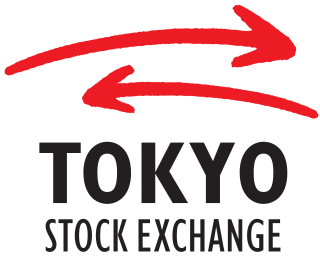In economics and finance, arbitrage is the practice of taking advantage of a price difference between two or more markets: striking a combination of matching deals that capitalize upon the imbalance, the profit being the difference between the market prices at which the unit is traded. When used by academics, an arbitrage is a transaction that involves no negative cash flow at any probabilistic or temporal state and a positive cash flow in at least one state; in simple terms, it is the possibility of a risk-free profit after transaction costs. For example, an arbitrage opportunity is present when there is the possibility to instantaneously buy something for a low price and sell it for a higher price.

Barings Bank was a British merchant bank based in London, and the world's second-oldest merchant bank after Berenberg Bank, Baring's close collaborator and German representative. It was founded in 1762 by Francis Baring, a British-born member of the German-British Baring family of merchants and bankers.
Nicholas William Leeson is an English former derivatives trader notorious for bankrupting Barings Bank, the United Kingdom's oldest merchant bank. He was a rogue trader who made fraudulent, unauthorized and speculative trades, and his actions led directly to the 1995 collapse of the bank, for which he was sentenced to prison.

The Tokyo Stock Exchange (東京証券取引所), abbreviated as Tosho (東証) or TSE/TYO, is a stock exchange located in Tokyo, Japan. It is the third largest stock exchange in the world by aggregate market capitalization of its listed companies, and the largest in Asia. It had 2,292 listed companies with a combined market capitalization of US$5.67 trillion as of February 2019.

The Nikkei, formally known as The Nihon Keizai Shimbun, is Nikkei, Inc.'s flagship publication and the world's largest financial newspaper, with a daily circulation exceeding three million. The Nikkei 225, a stock market index for the Tokyo Stock Exchange, has been calculated by the newspaper since 1950.

Black Monday is the name commonly attached to the global, sudden, severe, and largely unexpected stock market crash on October 19, 1987. In Australia and New Zealand, the day is also referred to as Black Tuesday because of the time zone difference from the United States.
New World Development Company Limited (NWD), is a Hong Kong-based company focused on property, infrastructure and services, department stores and hotels. It was established on 29 May 1970 by Cheng Yu-tung. The company is publicly listed on the Stock Exchange of Hong Kong Limited since 23 November 1972 and is a constituent stock of Hong Kong Hang Seng Index.

Epinions.com was a general consumer review site established in 1999. Epinions was acquired in 2003 by DealTime, later Shopping.com, which was acquired by eBay in 2005. Epinions users could access reviews about a variety of items. On 25 March 2014, all community features, and features for submitting and editing reviews, were disabled. Subsequently, in May 2018, the site was fully closed down, and URLs in the epinions.com domain redirect to Shopping.com.
D. E. Shaw & Co., L.P. is a multinational investment management firm founded in 1988 by David E. Shaw and based in New York City. The company is known for developing complicated mathematical models and sophisticated computer programs to exploit anomalies in the market. D. E. Shaw & Co. manages $50 billion in AUM, $30 billion of which are alternative investments and the remaining $20 billion long-oriented investments. In 2018, Institutional Investor reported that among hedge funds, D. E. Shaw & Co. had delivered the fifth-highest returns in the world since its inception.

Ben Mezrich is an American author.

Osaka Exchange, Inc., renamed from Osaka Securities Exchange Co., Ltd., is the second largest securities exchange in Japan, in terms of amount of business handled.
Risk arbitrage, also known as merger arbitrage, is an investment strategy that speculates on the successful completion of mergers and acquisitions. An investor that employs this strategy is known as an arbitrageur. Risk arbitrage is a type of event-driven investing in that it attempts to exploit pricing inefficiencies caused by a corporate event.
Proprietary trading occurs when a trader trades stocks, bonds, currencies, commodities, their derivatives, or other financial instruments with the firm's own money, aka the nostro account, contrary to depositors' money, in order to make a profit for itself. Proprietary traders may use a variety of strategies such as index arbitrage, statistical arbitrage, merger arbitrage, fundamental analysis, volatility arbitrage, or global macro trading, much like a hedge fund. Many reporters and analysts believe that large banks purposely leave ambiguous the proportion of proprietary versus non-proprietary trading, because it is felt that proprietary trading is riskier and results in more volatile profits.
Algorithmic trading is a method of executing orders using automated pre-programmed trading instructions accounting for variables such as time, price, and volume. This type of trading attempts to leverage the speed and computational resources of computers relative to human traders. In the twenty-first century, algorithmic trading has been gaining traction with both retail and institutional traders. It is widely used by investment banks, pension funds, mutual funds, and hedge funds that may need to spread out the execution of a larger order or perform trades too fast for human traders to react to. A study in 2019 showed that around 92% of trading in the Forex market was performed by trading algorithms rather than humans.

CITIC Limited is a conglomerate headquartered in Hong Kong. Its shares are listed on the Main Board of the Hong Kong Stock Exchange, and it is a constituent of the Hang Seng Index. 58% of its issued shares are owned by the Chinese state-owned CITIC Group.
Alphonse "Buddy" Fletcher Jr. is an American former hedge fund manager and founder of the Fletcher Foundation. He began his career as a quantitative equity trader at Bear Stearns and later worked at Kidder, Peabody & Co. Fletcher, who is African American, sued Kidder Peabody for racial discrimination. Although his racial discrimination claims were dismissed, he eventually won an arbitration award of US$1.26 million. Fletcher has also been involved in litigation centered on a dispute with the board of The Dakota apartment building in New York City.

Glorious Property Holdings Limited is a Shanghai-based property developer, established in 1996. It has a land bank of 13.6 million square meters in cities like Shanghai, Beijing and Tianjin.

BTG Pactual is a Brazilian financial company that operates in the markets of investment banking, wealth management and asset management. It offers advisory services in mergers and acquisitions, wealth planning, loans and financings, as well as investment solutions and market analyses. It's the biggest investment bank in Latin America and the Caribbean. Also the 5th biggest bank in Brazil.
Israel Englander is an American investor, hedge fund manager, and philanthropist. In 1989, he founded his hedge fund, Millennium Management, with Ronald Shear. The fund was started with $35 million, and as of 2019 had $39.2 billion in assets under management. With a personal net worth of $7.2 billion as of October 2020, he is the 74th-richest person in the United States. In 2019, he was the 7th-highest earning hedge fund manager.

SAC Capital Advisors was a group of hedge funds founded by Steven A. Cohen in 1992. The firm employed approximately 800 people in 2010 across its offices located in Stamford, Connecticut and New York City, and various international satellite offices. It reportedly lost many of its traders in the wake of various investigations by the Securities and Exchange Commission (SEC). In 2010, the SEC opened an insider trading investigation of SAC and in 2013 several former employees were indicted by the U.S. Department of Justice. In November 2013, the firm itself pleaded guilty to insider trading charges and paid $1.2 billion in penalties, although no formal charges have been filed against Cohen himself. The firm shrunk after returning the vast majority of its outside investor capital. Point72 Asset Management was established as a separate family office in 2014. SAC ceased to exist as a separate entity in 2016.











